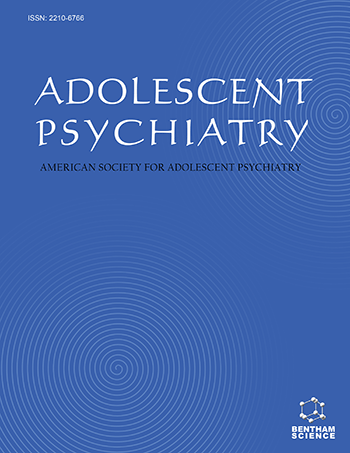Abstract
Interest in the effectiveness of psychological interventions in patients with psychosis has increased in the last 2 decades, and early intervention programs are increasingly common. PIENSA (Programa de Intervención en Psicosis Adolescente; Intervention Program for Adolescent Psychosis) is a clinical program and pilot study based on previous research into the efficacy of early intervention in preventing relapse and improving outcome in patients with first-episode psychosis.
We describe a psychoeducational intervention designed for adolescents with early-onset psychosis and their parents. The intervention is adapted from McFarlane’s Multiple Family Therapy model to our setting and population (adolescents treated in the Spanish public health system). It consists of 2 stages: an individual stage comprising 3 sessions and a subsequent group stage comprising 12 sessions. The total program lasts for 1 academic year (9 months).
We present the design of our program and our preliminary experience in a Child and Adolescent Unit in Spain.
Keywords: Adolescents, family intervention, group therapy, psychoeducational, psychosis, treatment.
Adolescent Psychiatry
Title:PIENSA: Development of an Early Intervention Program for Adolescents With Early-Onset Psychosis and Their Families
Volume: 2 Issue: 3
Author(s): Ana Ruiz-Sancho, Ana Calvo, Marta Rapado-Castro, Miguel Moreno, Carmen Moreno, Teresa Sanchez-Gutierrez, Cecilia Tapia, Guadalupe Chiclana, Pamela Rodriguez, Patricia Fernandez, Celso Arango and Maria Mayoral
Affiliation:
Keywords: Adolescents, family intervention, group therapy, psychoeducational, psychosis, treatment.
Abstract: Interest in the effectiveness of psychological interventions in patients with psychosis has increased in the last 2 decades, and early intervention programs are increasingly common. PIENSA (Programa de Intervención en Psicosis Adolescente; Intervention Program for Adolescent Psychosis) is a clinical program and pilot study based on previous research into the efficacy of early intervention in preventing relapse and improving outcome in patients with first-episode psychosis.
We describe a psychoeducational intervention designed for adolescents with early-onset psychosis and their parents. The intervention is adapted from McFarlane’s Multiple Family Therapy model to our setting and population (adolescents treated in the Spanish public health system). It consists of 2 stages: an individual stage comprising 3 sessions and a subsequent group stage comprising 12 sessions. The total program lasts for 1 academic year (9 months).
We present the design of our program and our preliminary experience in a Child and Adolescent Unit in Spain.
Export Options
About this article
Cite this article as:
Ruiz-Sancho Ana, Calvo Ana, Rapado-Castro Marta, Moreno Miguel, Moreno Carmen, Sanchez-Gutierrez Teresa, Tapia Cecilia, Chiclana Guadalupe, Rodriguez Pamela, Fernandez Patricia, Arango Celso and Mayoral Maria, PIENSA: Development of an Early Intervention Program for Adolescents With Early-Onset Psychosis and Their Families, Adolescent Psychiatry 2012; 2 (3) . https://dx.doi.org/10.2174/2210676611202030229
| DOI https://dx.doi.org/10.2174/2210676611202030229 |
Print ISSN 2210-6766 |
| Publisher Name Bentham Science Publisher |
Online ISSN 2210-6774 |
 20
20
- Author Guidelines
- Graphical Abstracts
- Fabricating and Stating False Information
- Research Misconduct
- Post Publication Discussions and Corrections
- Publishing Ethics and Rectitude
- Increase Visibility of Your Article
- Archiving Policies
- Peer Review Workflow
- Order Your Article Before Print
- Promote Your Article
- Manuscript Transfer Facility
- Editorial Policies
- Allegations from Whistleblowers
Related Articles
-
Adolescents with Same Sex Parents: Does it Make a Difference?
Adolescent Psychiatry Adolescent Depression Screening: Not So Fast
Adolescent Psychiatry An Adolescent Psychiatrist Looks at the Story of Adolescent Addiction in The Basketball Diaries by Jim Carroll
Adolescent Psychiatry Eating Disorder Subtypes in a Young Female Sample Using the Operationalized Psychodynamic Diagnosis System: Preliminary Results
Adolescent Psychiatry Professionalism and Adolescent Psychiatry in the Digital Age
Adolescent Psychiatry Keeping it Real: Overcoming Resistance in Adolescent Males Mandated into Treatment
Adolescent Psychiatry Addressing Low Self-Esteem in Adolescents with Eating Disorders
Adolescent Psychiatry “When Can I See You Again?”: The Immigration Experience, Insecure Attachment and Psychotherapy
Adolescent Psychiatry The Shame Ethic in Adolescent Psychotherapy
Adolescent Psychiatry Maternal Awareness of Adolescent Bullying Victimization in a Low-Income Context
Adolescent Psychiatry Cognitive Behavioral Therapy for Adolescents at Clinical High Risk for Psychosis
Adolescent Psychiatry Depression in Adolescent Suicide Attempters: A Cross-Sectional Comparative Study
Adolescent Psychiatry Summaries of Selected Presentations from the 2012 Annual Meeting of the American Society for Adolescent Psychiatry
Adolescent Psychiatry Should Adolescents be Screened for Depression?
Adolescent Psychiatry Editorial (Adolescence—plus ca change, plus c' est la meme chose?)
Adolescent Psychiatry Borderline features in Youth with Bipolar Spectrum Disorders
Adolescent Psychiatry A Psychiatric Perspective on Narratives of Self-Reflection in Resilient Adolescents
Adolescent Psychiatry Altering Outcomes in Juvenile Offending: The Evidence Base
Adolescent Psychiatry Impact of Religious Retreats on Disruptive Behaviors in Incarcerated Youth
Adolescent Psychiatry “Ride or Die”: Therapeutic Interventions for Retaliatory Violence Among Youth
Adolescent Psychiatry

























